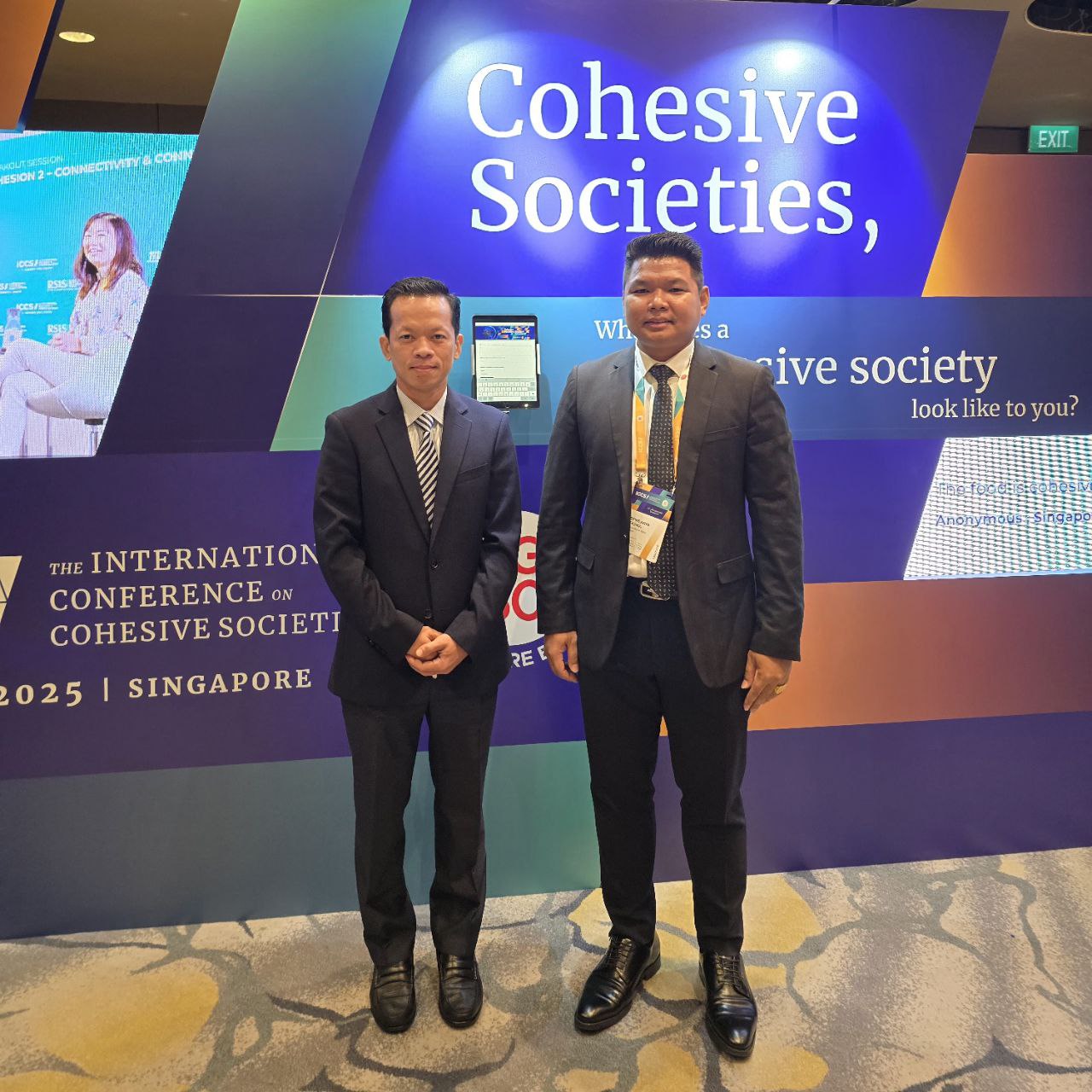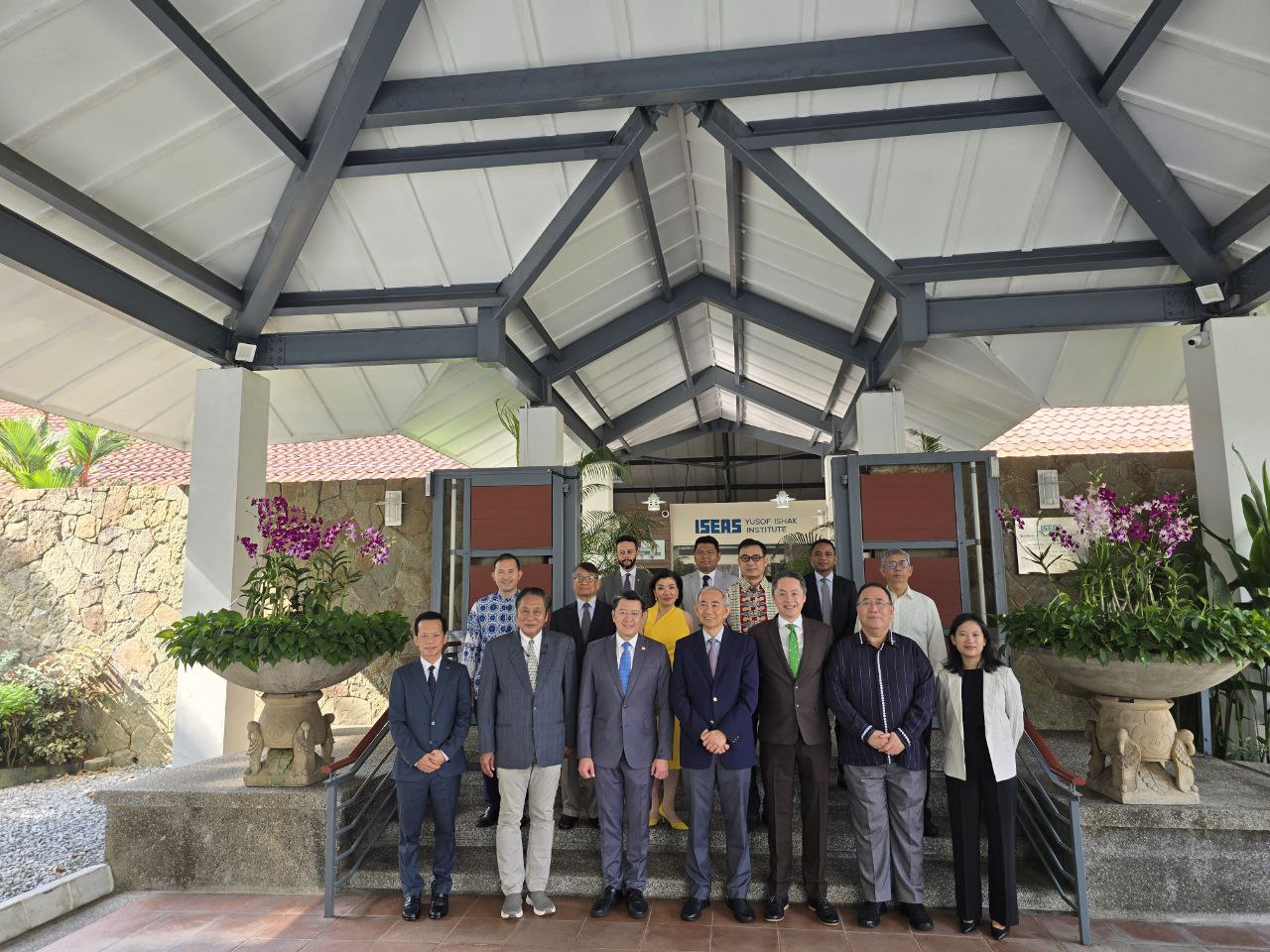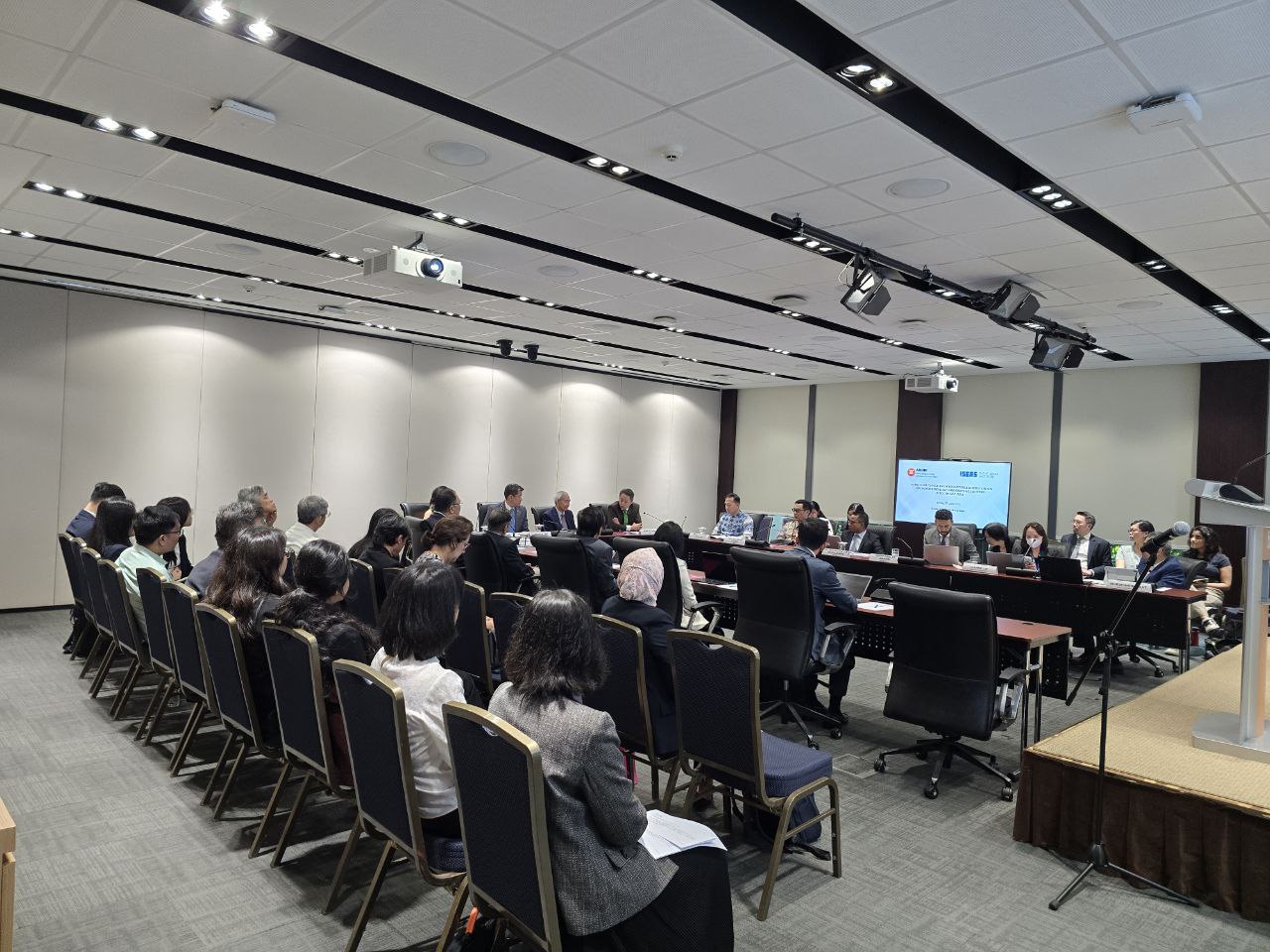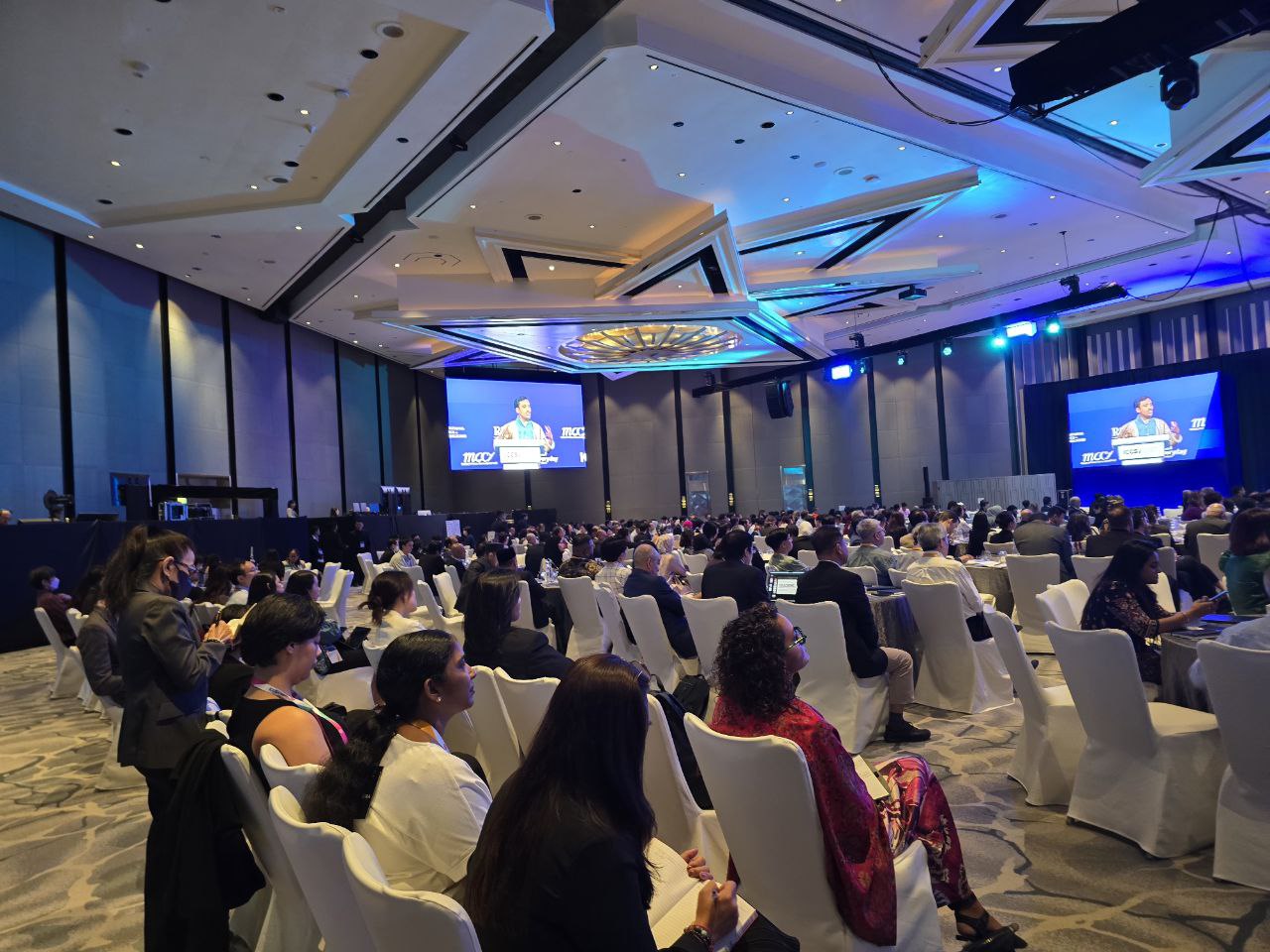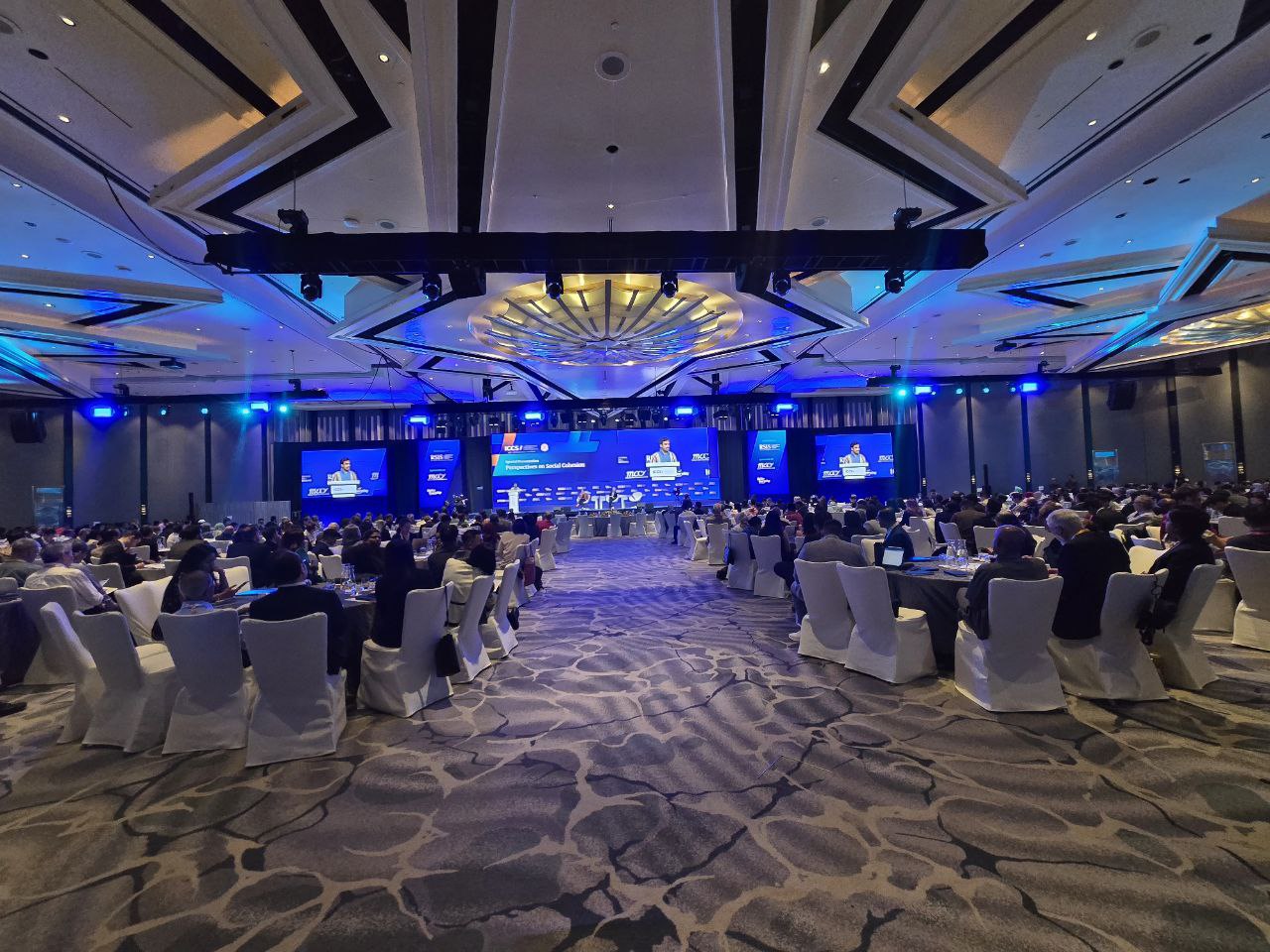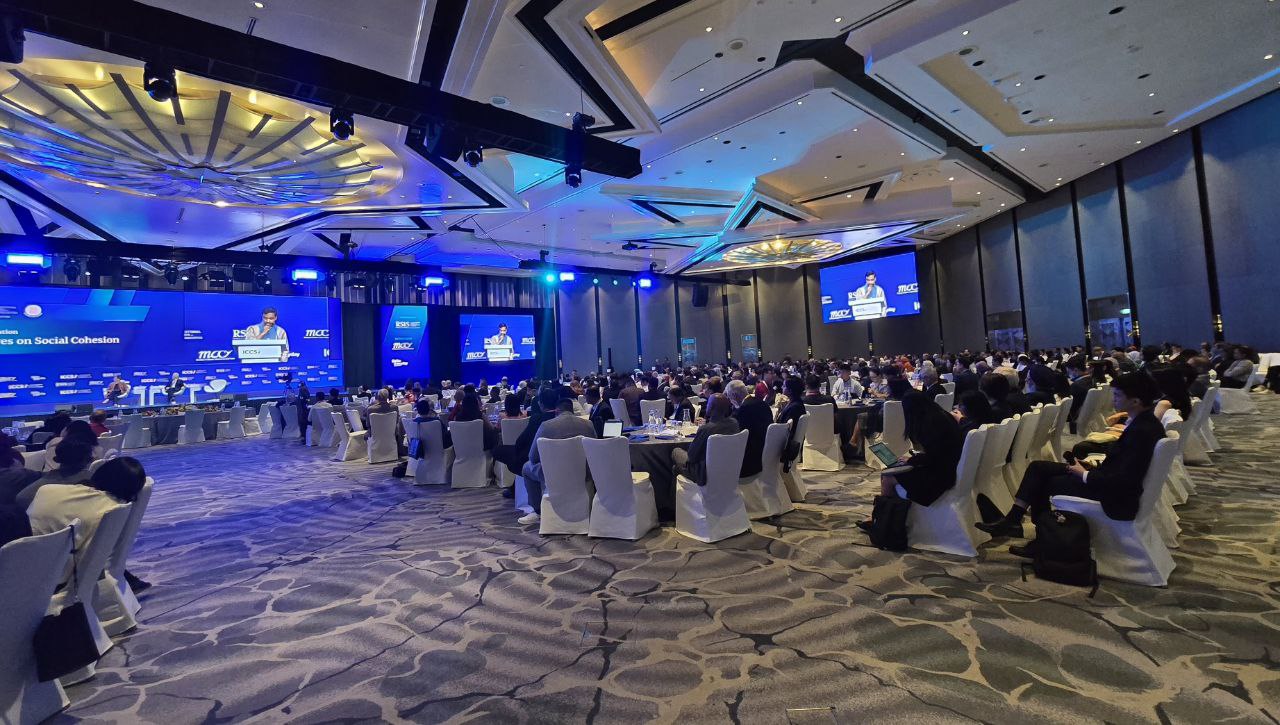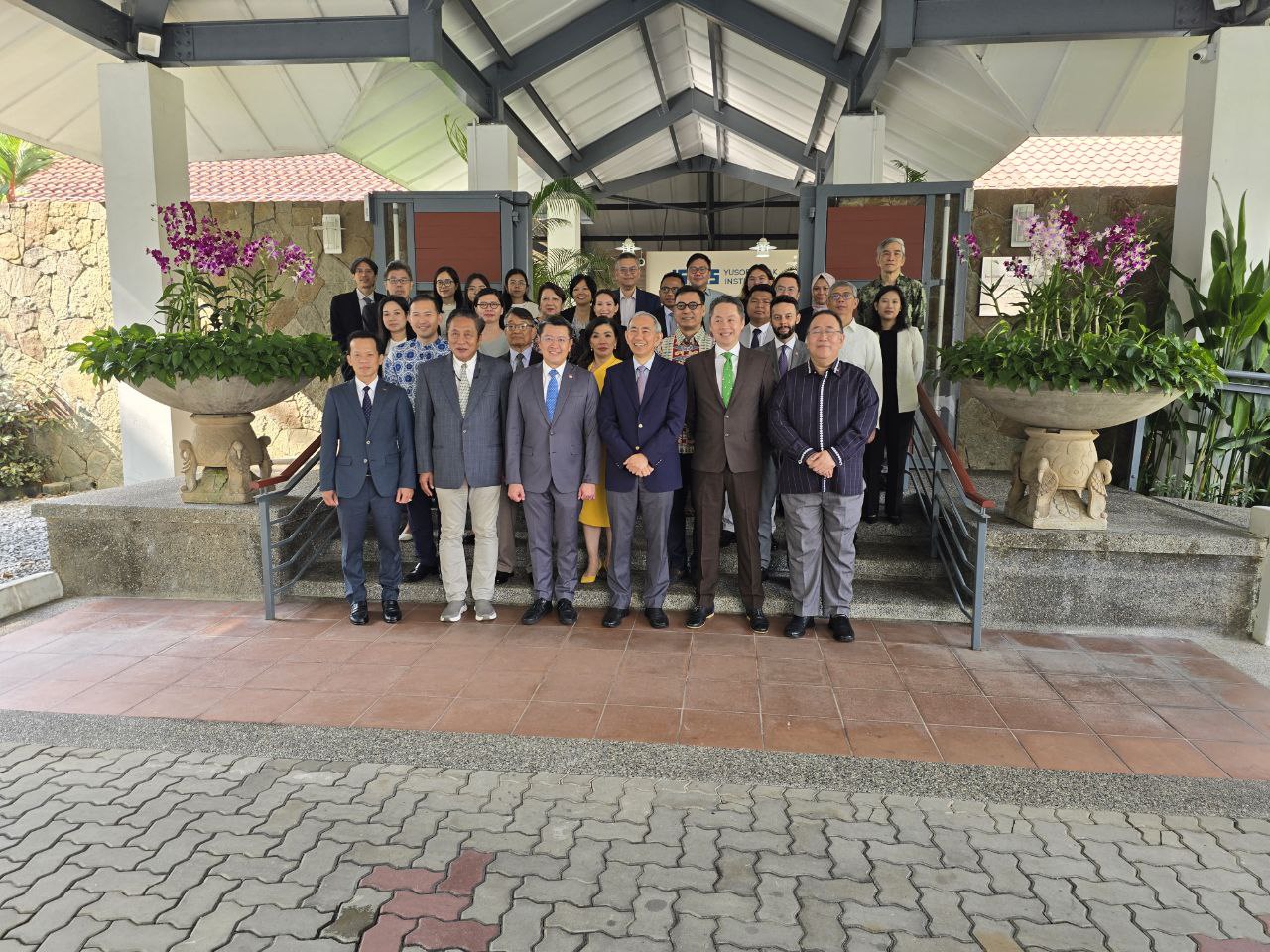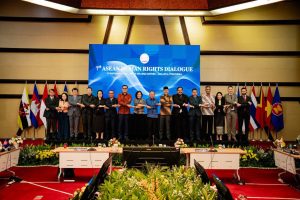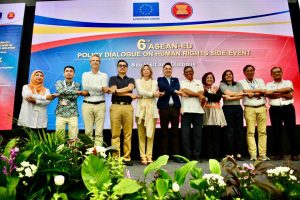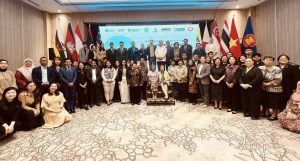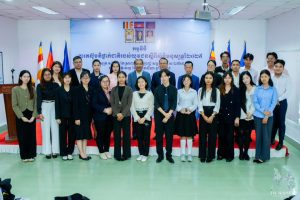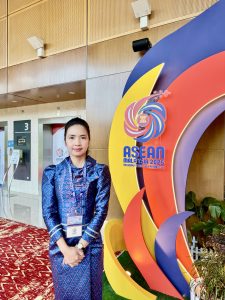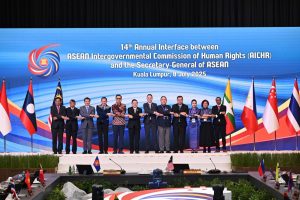HE Sreang Chenda and HE Sophearin Veasna Attended AICHR’s Annual International Conference and Roundtable on Cohesive Societies
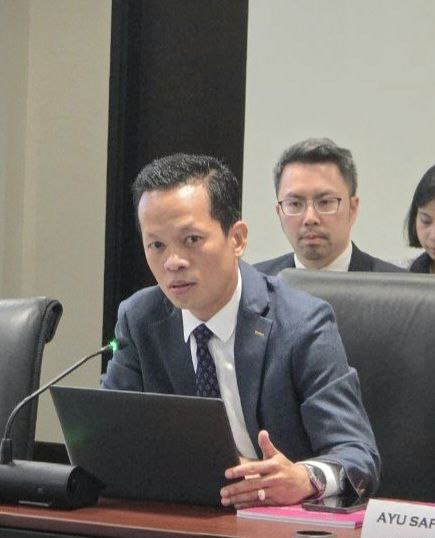 HE Sreang Chenda and HE Sophearin Veasna Attended AICHR’s Annual International Conference and Roundtable on Cohesive Societies
HE Sreang Chenda and HE Sophearin Veasna Attended AICHR’s Annual International Conference and Roundtable on Cohesive Societies
Singapore: HE Keo Remy, Senior Minister, President of the Cambodian Human Rights Committee (CHRC) and Cambodia’s Representative to the ASEAN Intergovernmental Commission on Human Rights (AICHR), assigned HE Sreang Chenda and HE Sophearin Veasna, CHRC members, to attend the AICHR’s 3rd International Conference and Annual Roundtable on Cohesive Societies on 24-27 June 2025 in Singapore.
The 3rd International Conference was organised by the S. Rajaratnam School of International Studies (RSIS) with the aim of providing a platform for all stakeholders to discuss and share views and good experiences to build harmony in a multicultural society, and the Annual AICHR and Yusof Ishak Institute (ISEAS) Roundtable, hosted by AICHR-Singapore, was held to provide an opportunity for sharing views on fostering religious harmony, which is an effort to support the development of resilient and cohesive societies across Southeast Asia.
In alignment with the goals of the aforementioned roundtable, HE Sreang Chenda demonstrated the religious harmony present in Cambodian society, which has developed through the firm political dedication and effective actions taken by the Royal Government of Cambodia to encourage tolerance, mutual respect, and harmonious religious coexistence. Thanks to this dedication, every citizen is able to freely observe their religious faiths, despite the Constitution of the Kingdom of Cambodia stating “Buddhism is the state religion.” For example, Khmer-Muslims are fully entitled to practise [their religion] and preserve their cultural identity. The Royal Government permits Khmer-Muslim students to wear their religious attire across all educational levels and institutions, including in photographs for ID cards and other official documents.
In addition, the Royal Government has actively supported the Khmer-Islamic community by appointing its members to key leadership positions at both national and sub-national levels. Places of worship are available in airports, hospitals, hotels, factories, and major markets. Furthermore, during the COVID-19 outbreak, the Royal Government of Cambodia permitted Khmer-Muslims to conduct burials according to their religious traditions, without being obliged to follow the health protocols that mandated cremation.
